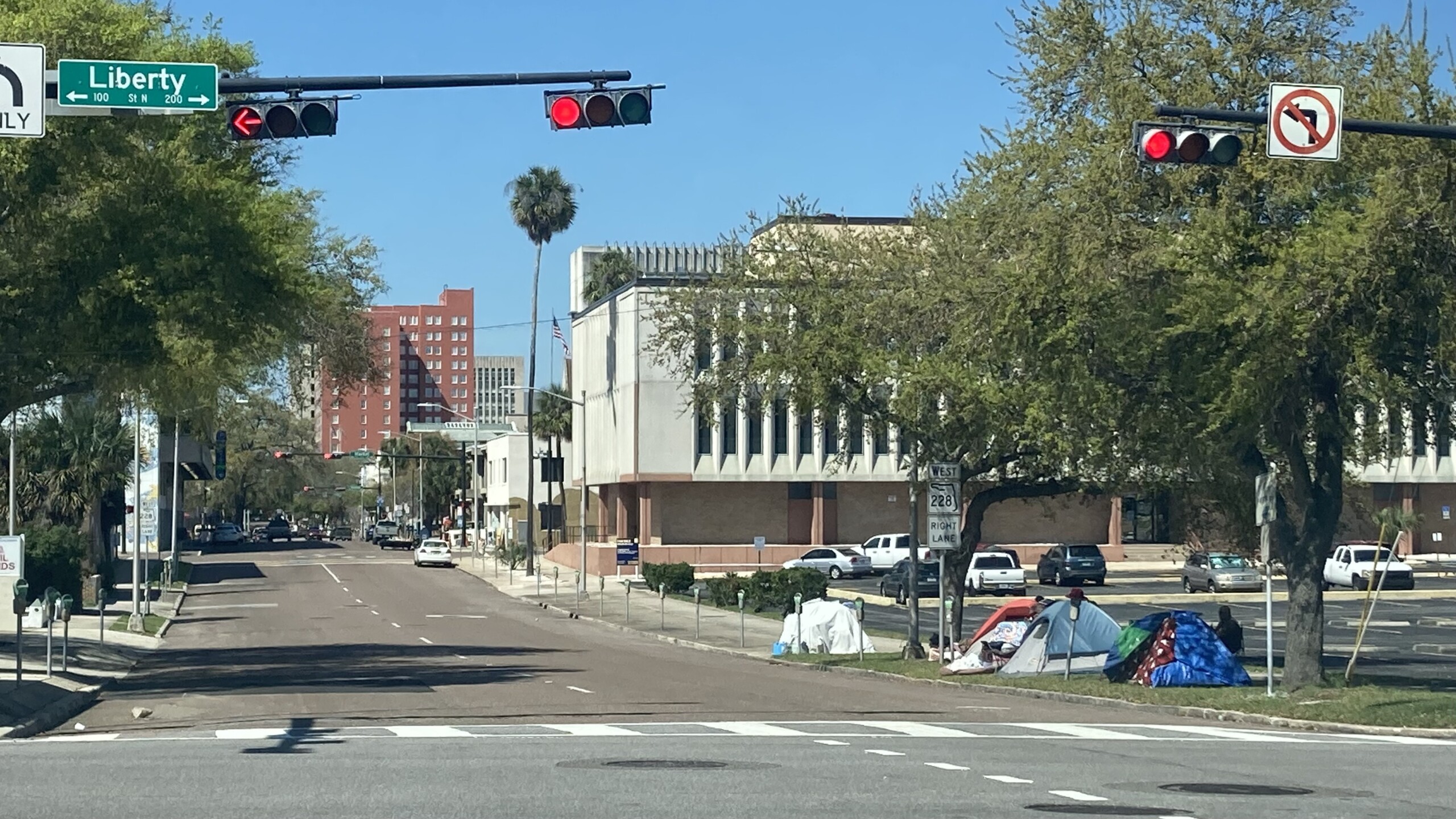Last week, several media outlets, including this one, reported that a large employer is moving out of Downtown due to safety concerns. “Citizens, which has been on Bay Street since 2015, says many employees have reported being threatened by or harassed by Downtown’s unhoused population,” went the summary of an Action News Jax story in the Aug. 14 Jacksonville Today newsletter. The article goes on to report that the Jacksonville Sheriff’s Office has been called to the company’s address 230 times, and 25 of those calls were due to suspicious or potentially mentally ill persons.
So, what were the other 205 calls about? As people experiencing homelessness are more likely to be victims of violent crime than everyone else, it is likely some of these calls were reports of harm done to a homeless person.
A 2014 study conducted in five cities found that 98% of homeless participants had experienced a violent attack. This is significantly higher than the 2% reported by people who have a home. Why does it matter that the stereotype of a “dangerous homeless person” is so pervasive?
One of the biggest barriers to developing housing that is accessible to persons exiting homelessness is the response “Not In My Back Yard” or NIMBY. The main reason for the NIMBY response is the belief that the level of dangerous activity will increase in the area. But according to Housing Forward Virginia, there is no correlation between safe, decent, affordable housing and crime. Additionally, affordable housing often has an insignificant or positive effect on property values in higher-rent neighborhoods and typically increases values in affordable neighborhoods.
The only way to solve an individual’s homelessness is for them to move into a home. Having a home increases the effectiveness of treatment for mental health and substance use disorder for those who need it. Having a home decreases the likelihood that a person will be a victim of a violent attack.
Changing Homelessness and many others are working daily to help people move off the streets and into a home. Help us do this work by questioning the myths surrounding people struggling on our streets.







